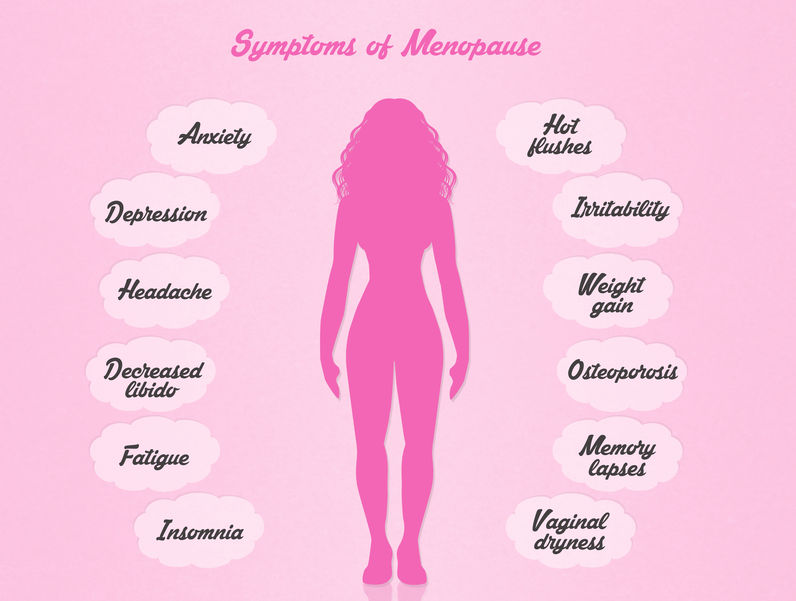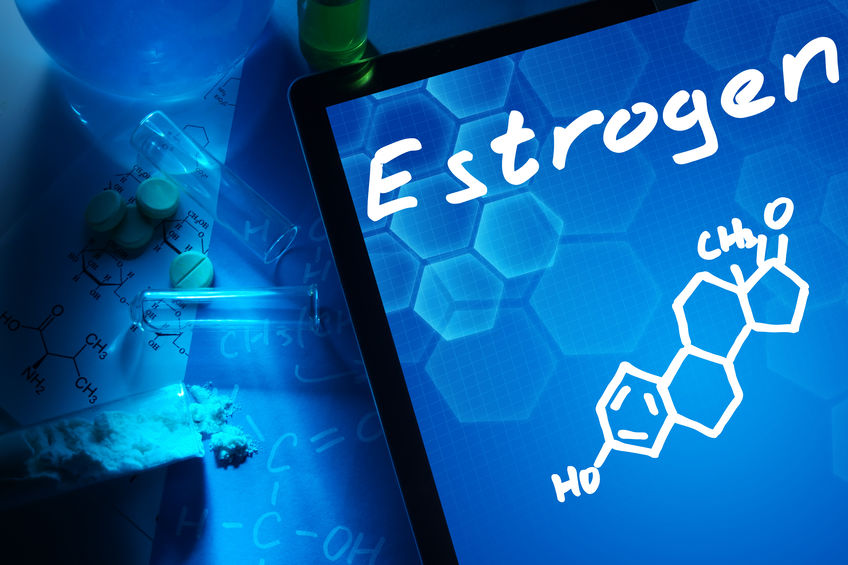Estrogen is probably one of the most well-known reproductive hormones produced by women, responsible for all the good (and bad) parts of being a woman. Men also produce estrogen, though not in such high levels as is present in women, and it is not clear the exact role that estrogen plays in men.
In women, estrogen is responsible for the development and maintenance of the reproductive system. Puberty, periods, and pregnancy are all thanks to estrogen. It also plays an important role in your overall health not necessarily linked to your reproductive system. Estrogen is responsible for maintaining a healthy metabolism and therefore, your weight. It is also important for strong and healthy bones, maintaining healthy cholesterol levels and a healthy heart.
The Role Of Estrogen
Estrogen is most likely one of the most loved and hated hormones in a woman’s body. It is what gives women their unique curved shape and higher-pitched voice, the development of breasts, and well, it is what makes us women. It is also what is responsible for PMS symptoms and acne.
Estrogen is primarily produced in the ovaries, starting during puberty, and it controls a woman’s menstrual cycle. Through the course of each monthly cycle, the levels of estrogen will rise and fall depending on the stage of the cycle. Estrogen is necessary for an egg to be produced and released from the ovaries as well as, thickening the lining the uterus in preparation for pregnancy. If fertilization does not occur, your estrogen levels drop (in combination with other hormones that rise and fall) and then you will get your period. Estrogen is also responsible for:
- Thickening of the vaginal wall
- Vaginal lubrication
- Strengthening the wall of the fallopian tubes which helps transport the egg and sperm
- Nourishing the mucous membrane lining the uterus
- Stimulating uterine contractions
- Development of breasts during puberty
- Lowering milk supply when breastfeeding stops
- Preserving bone strength and preventing osteoporosis
- Regulating weight
When estrogen levels are balanced, functions in a woman’s body go smoothly without any negative symptomatology. However, sometimes levels of estrogen become unbalanced and that’s when women will feel like things in her body are going wrong and can experience some negative effects.
The Reason Behind Low Estrogen
The most likely reason for low estrogen is menopause or perimenopause. It is typical in women over the age of 40 to start experiencing a decline in estrogen. Though really, anything that affects the ovaries will affect how much estrogen is produced, so low estrogen levels can occur at any age. Other than menopause or perimenopause, some reasons for low estrogen include:
- Eating disorders
- Excessive exercise
- Being underweight or malnourished
- Thyroid issues
- Premature ovarian failure as the result of genetic defects
- Kidney disease
- Chemotherapy
- Congenital conditions like Turner syndrome
- An underactive pituitary gland
- A family history of hormonal problems
- Autoimmune diseases
Low Estrogen Symptoms
When there are changes to your estrogen levels, you will usually know about it as you may notice a change in your menstrual cycle or experience some other health concerns, both physical and emotional. The most common symptoms of low estrogen are:
Irregular and Missed Periods – Estrogen is one of the primary hormones regulating your menstrual cycle. Without estrogen, your body won’t be able to ovulate and when you don’t ovulate, you won’t have a period. One of the early signs of menopause is when you start having fewer periods until they stop completely once you have reached menopause.
Infertility – If your body is not ovulating, you will not be able to fall pregnant.

Hot flashes and night sweats – When you hear the word menopause, or even perimenopause, this is probably the first thing you think of. Hot flashes and night sweats are probably one of the more uncomfortable signs of perimenopause, which can strike at any moment and have a major impact on your quality of life, all thanks to low estrogen. Estrogen plays an important role in how the hypothalamus, an area of the brain, regulates various functions in the body, including body temperature. When estrogen is low, you will be more sensitive to even the slightest increase in temperature, and so your body will sweat in an attempt to cool down.
Insomnia – Night sweats can keep you up at night and make it difficult to sleep. Low estrogen levels also have an impact on the production of melatonin, the sleep hormone that helps you fall asleep at night.
Mood Swings – Low estrogen levels can cause changes to other hormones in the body affecting your mood. Just think of other times during your menstrual cycle and pregnancy when mood swings are more common as a result of changing levels of estrogen. The lack of sleep can also exacerbate this problem.
Depression – Estrogen is important for the regulation of serotonin levels. Serotonin, also known as the happy hormone, plays an important role in your mood and also your sleeping patterns. When estrogen is low, serotonin is low and this will have a negative impact on your mood, leading to feelings of depression and anxiety.
Weight Gain – Low estrogen can affect your weight in a few ways. The main reason is that estrogen plays an important role in regulating your metabolism and controlling body weight. Low estrogen means a slower metabolism and so your body is more likely to hold on to fat. The other effects low estrogen has on your body, such as depression, insomnia and low energy, can also affect your weight as you may be stress eating or eating more to compensate for being tired, and you may be exercising less.
Pain During Sex – Estrogen is responsible for the thickening of the vaginal walls and vaginal lubrication, so when estrogen is low, vaginal dryness is more likely which can result in painful intercourse.
Weak Bones – Estrogen plays an important role in bone density, so if estrogen is low, bone density will decrease too. This leaves you more susceptible to fractures and broken bones, as well as osteoporosis.
More UTIs – Low estrogen causes the urethra to become thin which increases the risk of harmful bacteria entering inside you and causing urinary tract infections or bladder infections.
Low Estrogen Symptoms – What Can Be Done?
The extent to which low estrogen symptoms bother you and affect your day to day life varies from woman to woman, so this will ultimately determine your course of action. Not all women will require treatment.
The most common solution prescribed by doctors for low estrogen is hormone replacement therapy (HRT) and is generally prescribed for women who are approaching menopause. This increases the levels of the hormones produced naturally in the body and is generally an effective solution for reducing the symptoms associated with low estrogen and menopause.
These hormones can be taken either orally, vaginally, applied to the skin, or by injection. The specific treatment and dosage will depend on the woman and her symptoms. While HRT is an effective treatment option it can cause certain side effects such as bloating, vaginal bleeding and headaches. It may also not be suitable for everyone, particularly women who have a history of cardiovascular disease, stroke, or high blood pressure as HRT can increase the risk of these health conditions.
While HRT is usually a combination of both estrogen and progesterone, another treatment is to take just estrogen alone. Estrogen therapy is typically prescribed to those with low estrogen but not necessarily because of menopause. As low estrogen can result in certain health issues, estrogen therapy can help minimize the risk of low bone density, osteoporosis, and cardiovascular disease. Estrogen therapy isn’t typically prescribed for the long-term because of the certain risks it carries. Dosage and how it is administered (estrogen pills, injections, vaginally, topically) will depend on the severity of symptoms.
There are also many natural supplements that have become popular for reducing the symptoms of low estrogen. Black cohosh, soy isoflavones, and wild yam are some of those that are commonly used and have been shown to have a positive effect on low estrogen symptoms and improving a woman’s quality of life.
Take Home Message
Estrogen is such a crucial hormone in a woman’s body, and when levels of this hormone are not being regulated as they should, it can wreak havoc on your overall health and can put you at risk for developing other health conditions. Low estrogen symptoms can be uncomfortable, possibly embarrassing, and can really have a negative effect on your day to day living. If you are experiencing symptoms of low estrogen, and are approaching the age of menopause, be aware of what your options are and know there is no reason to be suffering. It is important to speak to your doctor to find out why your estrogen may be low and to find the best treatment option for you.

